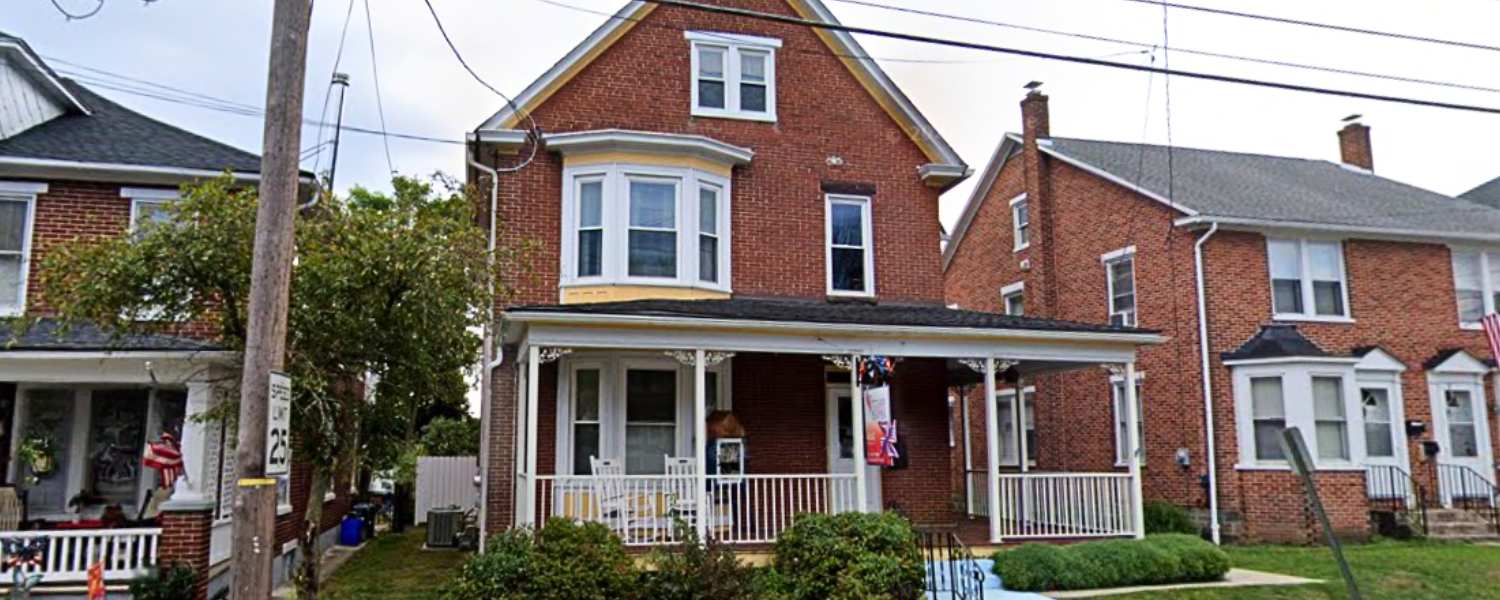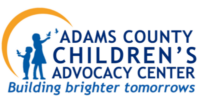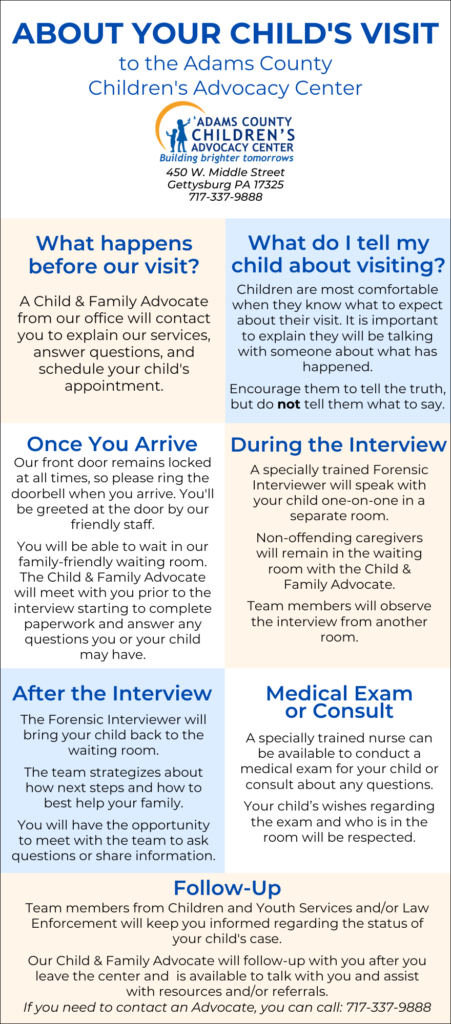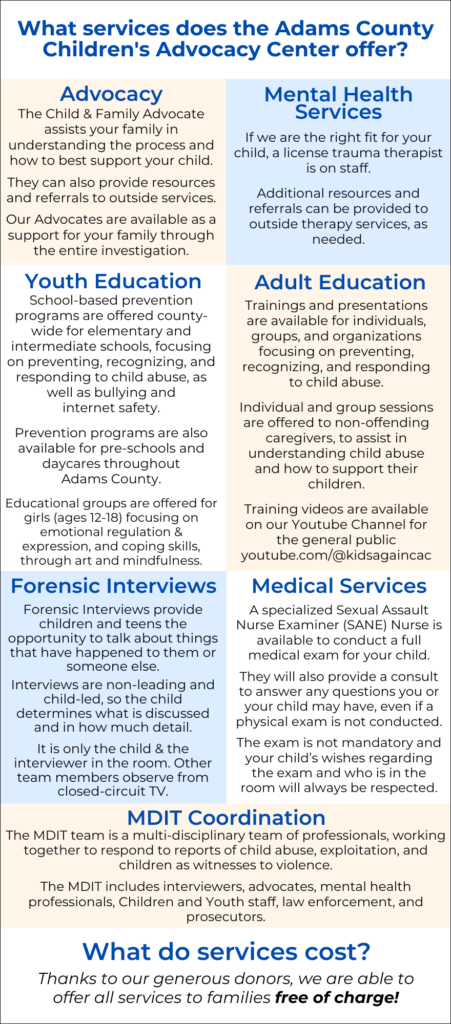
Visiting Our Center
You Have the Most Critical Role in Your Child’s Healing
Many children who visit ACCAC have been traumatized by past and ongoing experiences. We want to support you and convey that your child’s trauma can be healed.
Children experience their world in the context of family relationships. You are your child’s most important supporter. The traumatic event your child has experienced may be stressful and traumatic for you as well. Taking care of yourself helps you take care of your child. Our Child & Family Advocates are here to help you deal with your family’s situation, identify needed resources and supports, and prepare you for the future.
About Your Child’s Visit To the Center
We know that when something has happened to your child, it is a difficult, stressful, and confusing time for your family. We hope this information helps you understand what to expect before, during, and after your child’s visit to the Adams County Children’s Advocacy Center (ACCAC).
We are here for you as long as you want and need our help. Our child-friendly facility and services are designed to reduce possible stress on your child and provide a safe, comfortable, neutral setting. The ACCAC staff are here to provide multiple services in one location to help your child and your family heal from the trauma of abuse.
The ACCAC coordinates a multi-disciplinary team of professionals who respond to reports of child abuse, neglect or exploitation, as well as cases of a child witnessing violence. The ACCAC works with social workers, police, prosecutors, advocates, and medical and mental health professionals to provide high-quality, specialized services for these children.
Working together, the team’s objectives are to:
- Minimize the impact of trauma on your child and your family
- Focus on restoring your child’s physical and emotional health
- Provide consistent, quality services in a culturally competent manner
- Work collaboratively to provide a coordinated, multidisciplinary response to reports of child abuse and neglect throughout each phase of your child’s case.
Most reports of child abuse require an interview of the child. To limit the number of times your child needs to be interviewed, ACCAC coordinates an initial (forensic) interview. This interview involves a specially-trained ACCAC staff member who talks with your child about things that have happened to them or things they have witnessed. Team members directly involved with the investigation observe the interview from another room via video.





